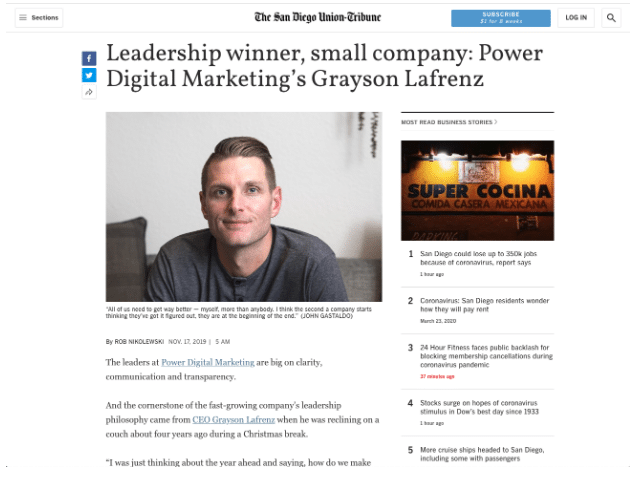Our blog
Power Digital CEO, Grayson Lafrenz is Featured in Real Business Examples of Smart Goals in the Workplace

Table of contents
Our CEO, Grayson Lafrenz shares why SMART goals are the only types of goals your company should be using. Here at Power Digital, we set 3 SMART goals weekly per department to have a successful year. We believe SMART goals are the way to success. Check out the full article below!
Link to Article:
Our Editorial Standards
Reviewed for Accuracy
Every piece is fact-checked for precision.
Up-to-Date Research
We reflect the latest trends and insights.
Credible References
Backed by trusted industry sources.
Actionable & Insight-Driven
Strategic takeaways for real results.








